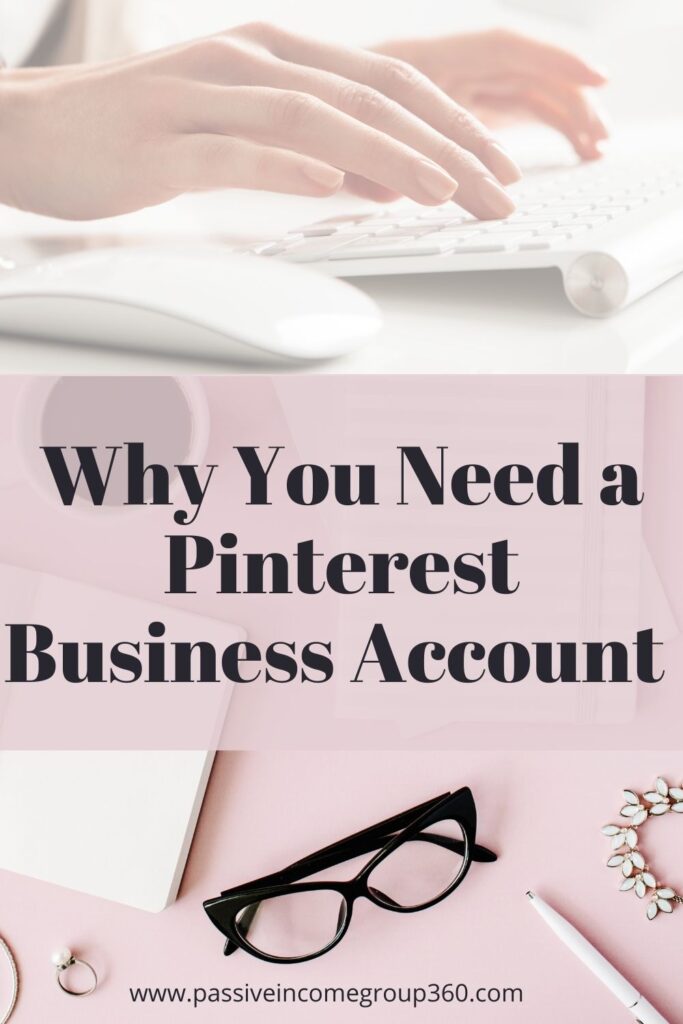Top 5 Reasons Why You Need a Blog
Well first a staggering statistic: There are approximately 500 million blogs out there. Of the 1.7 billion websites that exist, about ⅓ of all websites are blogs. Seem hard to believe? Well, think about it.
Creating a blog is as easy as purchasing a domain name and creating a blogging website. There’s a very low bar to entry and anyone with one post can technically say they have a blog. So while it is true that there are lots of blogs, it is doubtful that there are 500 million blogs with regular, updated content.

With so many other blogs it’s easy to feel as though we don’t have anything to contribute or add to any conversation. A phrase taken from the Bible reminds us that there is nothing new under the sun. All that means is anything you want to write about has already been talked about, written about, and/or spoken about.
All we can do is figure out ways to bring information forward in a unique way, with a unique twist. There is nobody else like you, so even if two people wrote about the same topic, chances are the end result would be different because no two people have the same personality, voice, or experiences. All of that shines through when writing a blog.
In addition, there are countless numbers of ideas to blog about. There are niches upon niches that you can choose from, and then there are even cross niches. There’s no doubt that anyone could come up with a unique take on just about anything.
So the numbers can be daunting but these numbers shouldn’t intimidate you. Let’s look at the potential benefits and the top 5 reasons your website needs a blog.
What Is a Blog Post?
A blog is a home for regularly updated written content online, usually a website. A blog post is one piece of content. The content is usually informative and written in a casual or instructive tone, and usually in the first person. There is no set rule on what a blog must be or must not be. The creator will usually choose the types of content they want to share with the public and start writing.
There are serious blogs that discuss things like drug recovery and ways to handle grief and blogs that talk about the best types of food and beer. It’s literally up to you. If you plan to use the blog for a business and plan to monetize its content, more consideration must go into the types of posts that are shared.
What Should I Include in My Blog Post?
If you are considering using a blog for a business, the common consensus is each blog post must be substantial in terms of length, ranging anywhere from 1500-3500 words, depending on the type of post and the subject matter.
Of course, the goal of the blog is to get noticed so people can read it. Your best chance of receiving regular, consistent, and free viewers to your blog is to rank on the first page of the Google search results for your post. Having a longer, more detailed post will give you a better shot of doing that.
If you are writing a blog post about fishing and you find that a competitor already has a great blog post about fishing you can try to outrank her in the search results by creating a longer post with more details and more relevant keywords.
For example, the competitor may talk about how great fishing is as a hobby, the best bait and rods to use, and the best time of day to fish. But if you also covered that and also went in-depth about the best lakes to fish in for different species of fish, the best tactics to use to catch more fish, and the best way to clean a fish in less time, you have created an arguable better post.
Just make sure your post has more words and more relevant detail. You can’t just throw in fish-related words, the post must make sense and be more helpful overall. It will take some time, but you would have a good chance of moving up in the search results for that particular post. You want to try and do this for each post you have, to beat out any competitor that may have written about something similar.
Blog Competition: How Do I Research That?
Use the free GoogleAds keyword planner tool. You have to create an ad account, following the steps as if you were going to place a Google ad. You do not have to actually place an ad though. It allows you to put in the keyword or phrase you may want to write about and the site gives you a general idea of the competition out there.
There are paid websites like Google Ads Keyword Finder that can give you must more detailed information but if you are just starting out the free Google ads tool should be sufficient.
The key is you want to find a keyword that people are looking for on Google, but one that has not been covered by larger, more established websites.
For example, if you wanted to write a blog about the trends in fashion entitled “The Most Popular Trends This Fall” you will likely be competing with names like Calvin Klein, Nordstrom, Vogue, etc. Probably not a good move if you want a new blog to get found.
A title like “Why You Should Care About This Fall’s Trends” may have more success. I didn’t check the stats but that’s just an example. Play around with different titles using different keywords and be intentional about your post topics. Blog competition makes this an essential step.
How Do I Add a Blog to My Website?
A blog can easily be added to most websites. It ultimately depends on the company you have chosen to host your website. And that reminds me, if you are blogging for business purposes be sure to secure a domain name.
A domain name is just the name of your website; www.bestblogintheuniverseforreal.com could be a domain name. If you can afford the added expense, use a web hosting company (the company that will provide a home for your blog) that will allow you to use a custom domain. Otherwise, the domain name could look like www.webhost.bestblogintheuniverseforreal.com.
This tells the world that your blog is not self-hosted. This doesn’t look as professional and it appears as though you have not put much thought or planning into your blog. Many web hosting companies like Squarespace offer a free domain for a year with web hosting for $18 per month. Zyro also offers a free domain for one year and charges $16.99 per month (on sale for $3.99 at the time of this post) Definitely check them out for deals.
But Why Do I Need a Blog?
Whether you own a business, are thinking of starting a business, or have no intention of starting a business, a blog can be beneficial to you on a professional or personal level.
1. Feel More Confident.
Writing on a regular basis can help you feel more confident in expressing yourself. Many people believe that they are unable to effectively express themselves in writing, either because they weren’t good writers in school or because they just haven’t had the opportunity to do so in the past.
Creating content that you know other people are reading and appreciating can help you gain the confidence you need to create other things like the copy on a sales website or marketing campaign.
2.A Blog Can Offer Good Writing Experience.
If you are someone who is interested in becoming a writer for a publication or if you are interested in becoming an author, regular blog content and the research that may be involved can help you gain the experience you need.
You can use your own blog posts as writing samples and your blog can serve as one big example of your talent and professionalism. Rather than sharing a resume with writing samples attached, you could provide a link to your own blog, allowing potential employers to see your work in a different, professional way. Of course, you don’t need a blog for a writing sample but chances are you will stand out.
3.Blog About Yourself.
A blog can be a great way to document your life in a living, breathing blog. You can use the blog to follow your progress on a journey or to help keep yourself accountable. Plan to run a marathon in a year? Want to get into shape by next summer? Why not start a blog sharing your goals with the world?
You can serve as an inspiration to others or just write about the challenges and milestones you’ve encountered along the way. You never know how the content you accumulate can be used. Should you decide to write a book or become a coach of some kind you would have great material that you could use to inspire others.
4. Monetize Your Blog
Even if you don’t plan to start a business outside of blogging you can still monetize your blog. Wonderful thing, huh? Affiliate marketing, ads, and sponsorships can all be used to bring money into your blogging business.
What Exactly is Affiliate Marketing?
Affiliate marketing is when a company offers to pay its affiliates (you) to market its products or services on its behalf. As an affiliate, you would receive a commission every time someone either clicks on the customized link you have added to your site or purchases something after clicking on the link you have added to your site.
The terms of how much and when you are paid vary from company to company. Networks like Shareasale are great for new bloggers. You do need to have traffic, or people coming to your site in order to reap the benefits of affiliate marketing, but over time this can pay off.
When Should I Sign Up With an Affiliate Marketing Network?
If you are interested in affiliate marketing I would suggest you sign up with a network now, begin posting blog posts relevant to the companies you work with, and add the customized links you receive as an affiliate, to your posts. This way, once traffic picks up, the links will already be in your posts.
For example, if I become an affiliate for ABC coffee company because I love their joe, I would write a blog post about the 5 best ways to brew a great cup of coffee and add the customized links I received from ABC to my blog post.
If someone reads my post and decides to try ABC using my link, I would receive a small commission. It’s a win-win. I’ve shared my experience with a great coffee company and I’ll get paid. Nine times out of ten I only share affiliate links if I’ve tried something and like it. If I’ve never used a particular product or service but would like to try it, I share that information as well.
While it’s tempting to wallpaper a blog post with affiliate links it’s best to only refer your readers to products you can stand behind. If you have used the product or service or would like to try it, be transparent.
Never add a link just for the sake of the commission, especially if you know the company is bogus. It will ruin any credibility or goodwill you have built with your readers if they discover you’ve led them to a scam. So what exactly is affiliate marketing? A great way to make extra money and provide value.
Put Ads On Your Blog
Once you begin to see regular traffic coming to your blog you can start to make money through advertising.
Place ads within your blog and every time a reader completes a certain action (clicks or purchases) you can receive a small commission. Some bloggers choose not to place ads on their site because they believe they can detract from the experience while others place them strategically throughout the site.
You will have to decide which is best for you and your readers. It may also be possible to receive paid sponsorships from brands.
You could reach out to the brand or maybe the brand will contact you, but the goal would be for you to negotiate a deal where they pay you to produce a post that will ultimately bring customers to them.
With affiliate marketing, ads, and sponsored posts you have to disclose that you are providing an advertisement, a sponsored post, or an affiliate offer.
The Federal Trade Commission has strict rules regarding these types of promotions on your site. When you put ads on your blog, be sure to comply and place the required disclosures whenever appropriate.
5. The Best Content Marketing
If you plan to start a business or already have a business separate from blogging you may need a blog to drive traffic to your site. There’s nothing like free content to get the word out about your product or service.
The content from your blog can be used in other marketing campaigns. You can use the titles of your posts and place them in social media posts, you can create pins on Pinterest, drawing people in with your blog post topics, and you can list your products and services on your site and benefit from the blog traffic.
Websites that are able to hold a user’s attention for a significant period of time perform better on Google’s search results.
Instead of just having a website with products or services listed, a website with a blog has a higher chance of keeping that reader on your website. In each blog post, you can include links to other relevant posts on your site and list related posts at the end of each post so readers will hopefully stick around to read more of your content.
It’s the best content marketing. Again a win-win. You’re providing value and the reader is helping you with the Google algorithm (just the formula Google uses to decide which websites should rank where).
So why do you need a blog? The bottom line is while these are the top five reasons your website needs a blog, there are many reasons why your website needs a blog, both personal and professional. Regardless of your passion, there’s a way to create a blog around it.


